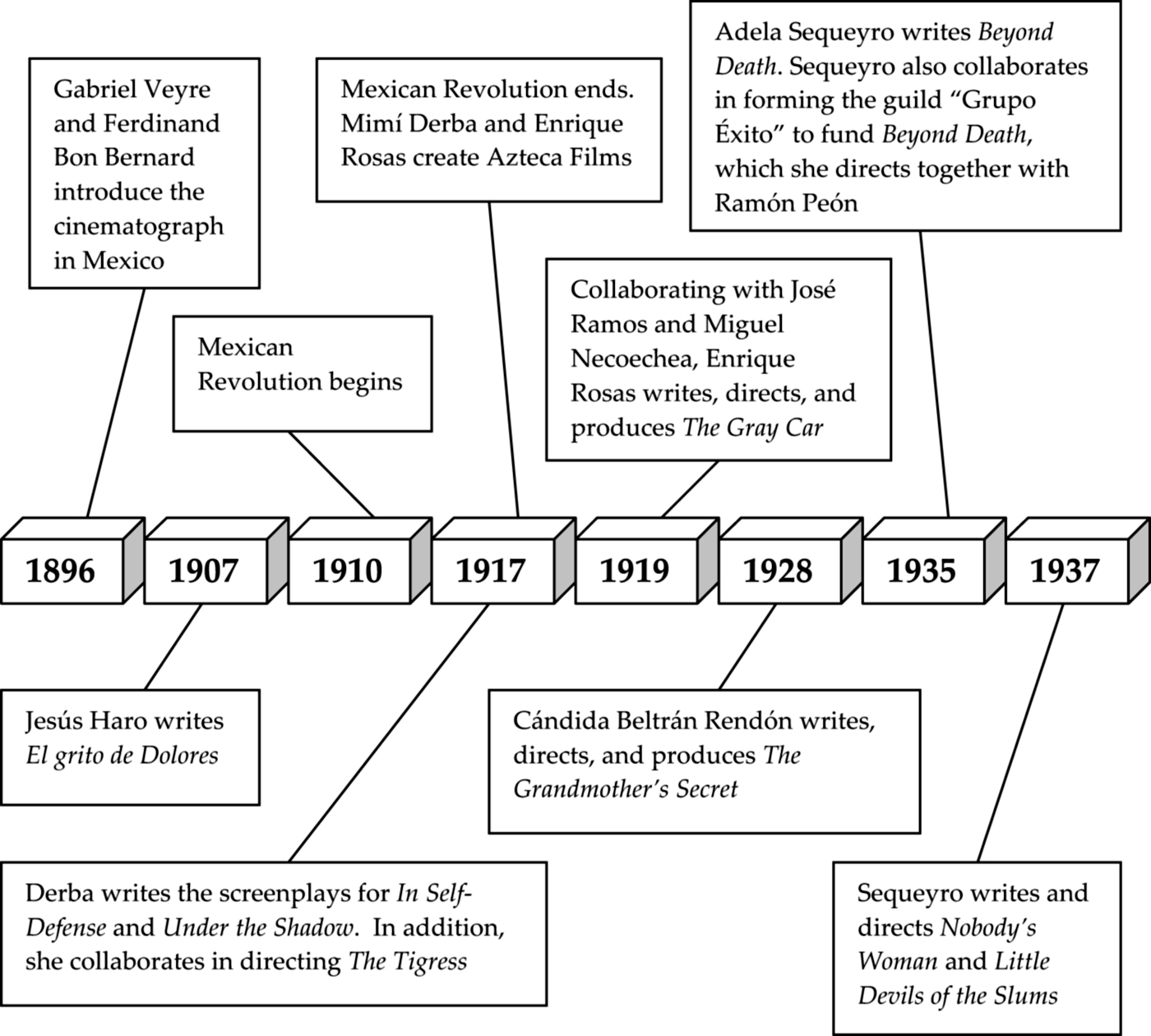The Story of the Mexican Screenplay
A Study of the Invisible Art Form and Interviews with Women Screenwriters
Summary
The Story of the Mexican Screenplay focuses on a general historical investigation of the Mexican screenplay, specifically on women’s screenwriting. In addition to screenplay analysis, the interviews with women screenwriters are revealing of various cultural issues such as gender discrimination in the work place, political censorship, collective screenwriting, and collaboration among writers, and with the director. These topics explain, in part, the double marginalization of female screenwriting in Mexico.
Excerpt
Table Of Contents
- Cover
- Title
- Copyright
- About the author(s)/editor(s)
- About the book
- This eBook can be cited
- Contents
- Acknowledgments
- The Mexican Screenplay and Women Screenwriters Time Line
- Part One: Historical Evaluation
- Chapter One. Introduction: Unveiling the Hidden Art Form
- Notes
- Chapter Two. History of the Mexican Screenplay and Women Screenwriters
- Notes
- Chapter Three. Fighting over Feminine Archetypes: Francisco Rojas González’s Black Angustias vs Matilde Landeta’s View of the Soldadera Mother
- Notes
- Chapter Four. A Text in a Constant State of Flux: From The Golden Cockerel to The Realm of Fortune
- Notes
- Part Two: Interviews with Mexican Women Screenwriters
- Chapter Five. The Women Pioneers of Mexican Cinema: Interview with Marcela Fernández Violante
- Chapter Six. Melodrama and The Realm of Fortune: Interview with Paz Alicia Garciadiego
- Chapter Seven. Women’s Collaborative Writing and Political Censorship in Mexican Cinema: Interview with Busi and Carmen Cortés
- Chapter Eight. The Creative Process of Collective Screenwriting, and the Standing of Screenplay in the Mexican Cinema Industry: Interview with Cecilia Pérez-Grovas and Carolina Rivera
- Bibliography
- Index
- Series Index
| vii →
I heartily thank Laura Kanost, who from the beginning embraced the idea of studying the screenplay, and promoting the unpublished work of Mexican female screenwriters among Anglo readers. She achieved the finest screenplay translations. Many thanks to all the authors who participated in the interviews: Marcela Fernández Violante, Paz Alicia Garciadiego, Busi Cortés, Carmen Cortés, Cecilia Pérez-Grovas, and Carolina Rivera. Their insight as screenwriters working in the Mexican film industry was instrumental. I am also deeply indebted to my students, who have continually motivated me by being as interested in reading and discussing screenplays as they are in watching and exploring finished films. Special thanks go to: Floyd Merrell, Laura Kanost, Melinda Cro, Necia Chronister, and Sara Luly, for reading early draft portions of the manuscript, and providing thoughtful suggestions. I also received valuable comments from many colleagues participating at Annual Screenwriting Research Network Conferences held in Copenhagen 2010, Brussels 2011, and Sidney 2012. Among them were Steven Price, Steven Maras, Jule Selbo, Eva Novrup, Mette Mortensen, and Ian Macdonald. This project could not have been finished without the support of the Office of Research and Sponsored Programs, The College of Arts and Sciences and the Department of Modern Language at Kansas State University. The Cineteca Nacional of Mexico, in particular Caty Bloch, enabled me to contact female screenwriters, and obtain their unpublished screenplays.
I dedicate this book to my family. My mother, my husband, Michael, and my children—Leilani, Tessie, and Louis—have been enthusiastic, loving, and patient supporters as I worked on this project for several years. Michael assisted with editing and formatting this manuscript. Mil gracias.
| ix →
The Mexican Screenplay and Women Screenwriters Time Line

← ix | x →
| 1 →
| 3 →
Details
- Pages
- X, 117
- Publication Year
- 2014
- ISBN (Hardcover)
- 9781433123818
- ISBN (PDF)
- 9781453912874
- ISBN (MOBI)
- 9781454195207
- ISBN (ePUB)
- 9781454195214
- ISBN (Softcover)
- 9781433110344
- DOI
- 10.3726/978-1-4539-1287-4
- Language
- English
- Publication date
- 2011 (December)
- Keywords
- ontology film production adaptation gender discrimination complexity historical investigation discrimination censorship
- Published
- New York, Bern, Berlin, Bruxelles, Frankfurt am Main, Oxford, Wien, 2014. X, 117 pp.
- Product Safety
- Peter Lang Group AG

